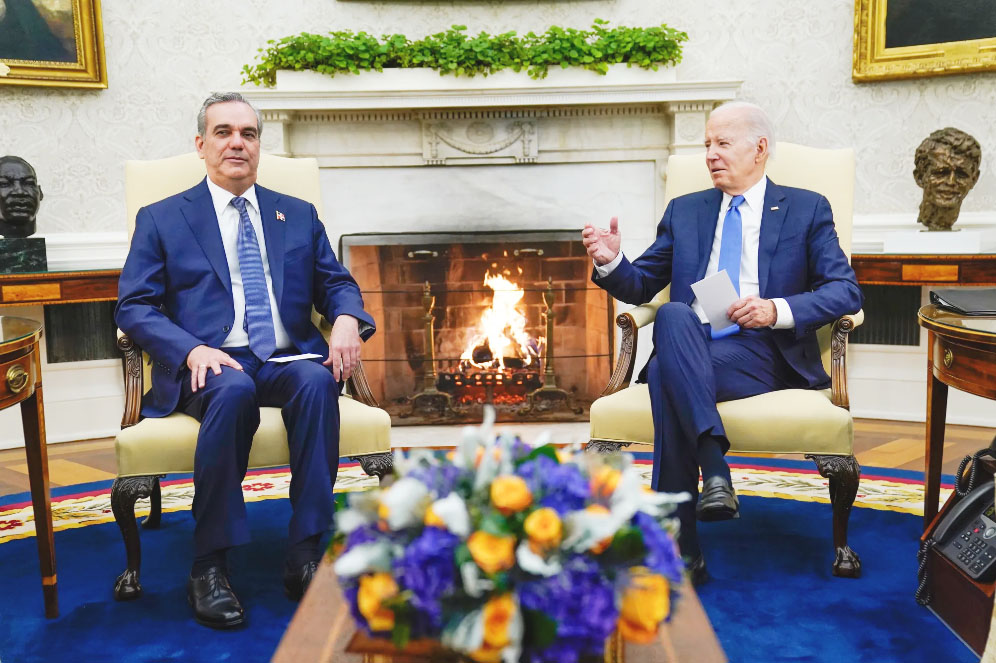WASHINGTON, (Reuters) – U.S. President Joe Biden and leaders from Canada, Latin America and the Caribbean yesterday pledged to strengthen the Western Hemisphere’s supply chains as Washington works to counter China and stem regional migration.
Biden hosted leaders from Barbados, Canada, Chile, Colombia, Costa Rica, the Dominican Republic, Ecuador, Peru and Uruguay and top officials from Mexico and Panama at the White House.
Leaders at the inaugural Americas Partnership for Economic Prosperity (APEP) Leaders’ Summit agreed to strengthening supply chains in areas including clean energy, medical supplies and semiconductors. The also vowed to expand regional trade links.
Biden started the meetings with a message of hope despite challenges posed by the Israel-Hamas conflict and the Ukraine war.
He said the summit’s goal was to “harness the incredible economic potential of the Americas and make the Western Hemisphere the most economically competitive region in the world,” drawing a sharp contrast to China’s often-criticized lending practices.
“We want to make sure that our closest neighbors know they have a real choice between debt-trap diplomacy and high-quality transparent approaches to infrastructure and inter-development,” Biden said.
The leaders agreed to meet every two years, with Costa Rica to host the next leaders’ summit in 2025.
Senior U.S. officials said they hope to reduce the numbers of migrants arriving at the U.S-Mexico border by expanding economic opportunities for people at home.
Six APEP countries – Costa Rica, Ecuador, Colombia, Peru, Chile and Panama – had offered legal status to millions of people displaced in the Western Hemisphere, one of the officials said. “They have stepped up in big ways and we are stepping up for them,” the official added.
Record numbers of migrants have crossed illegally through the U.S.-Mexico border in recent years, with hundreds of thousands of people heading north after traversing a perilous jungle region known as the Darien Gap between Colombia and Panama.
Jason Marczak, senior director of the Atlantic Council’s Adrienne Arsht Latin America Center, said the partnership would “set the stage for a new era of U.S. investment in the region.” He cited bipartisan support in Congress for more investment after supply chain snafus during the COVID-19 pandemic triggered concerns about over-reliance on China.
U.S. Treasury Secretary Janet Yellen hosted a meeting for the leaders on Friday and said Washington would work with other shareholders to enable a “significant” capital increase for the Inter-American Development Bank’s (IDB) private sector arm, IDB Invest.
The United States, Canada, South Korea and Spain are working with the IDB to make $89 million in grants available for countries dealing most with irregular migration, the White House said.
The IDB will also unveil a new financing platform to serve middle- and higher-income countries, potentially mobilizing billions of dollars for investment in renewable energy, U.S. officials said.
Meanwhile, the United States Agency for International Development committed $5 million to help launch an “accelerator” program to support up-and-coming entrepreneurs from the Americas.






